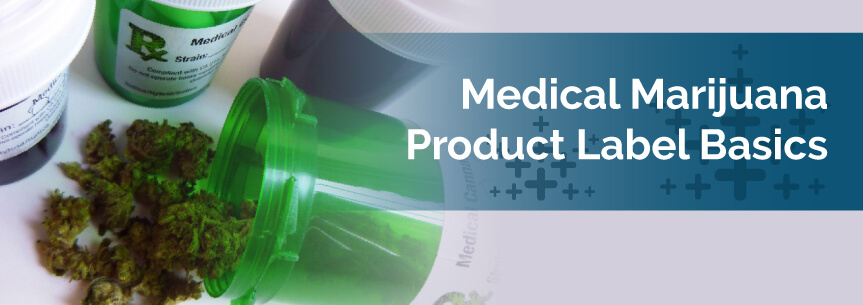
Medical marijuana comes with labels containing a lot of information about the product. Here’s a handy guide to understanding what that label is telling you.
States allowing medical marijuana use have individual labeling laws, meaning there are no across-the-board standards dictating what a pot product label should include. In addition, a few states don’t enforce special testing requirements on cannabis products. Consequently, these states’ pot labels may or may not provide accurate information about the marijuana you’re using.
Alternately, comprehensive medical cannabis labels offer information regarding strain (Sativa or Indica), the individual or company producing the marijuana, testing date, laboratory name/location and legal compliance information according to state laws.
Here’s an overview of the individual components you’ll find on medical marijuana labels:
Labels could also list the total number of CBDs in the product, which includes all cannabinoids present in the product. Medicinal marijuana with high numbers of compounds are extremely potent, both medicinally and psychoactively.
Also, be aware of medicinal cannabis products that are not labeled, or have labels with little information. Without a label specifying where it was tested, consumers can’t know if the product is contaminated with pesticides or herbicides. Some labels will list pesticide residue amounts. If your medicinal marijuana product label states that it has under .1 parts per million, it’s safe for consumption.
Examples of the wide variety of labeling laws include the following guidelines determined by California, Delaware and Illinois lawmakers:
California’s Assembly Bill 266 provides regulations for the labeling of medicinal marijuana products. If you are prescribed medicinal marijuana in California, make sure the labeling includes the following:
Medicinal marijuana prescribed in Delaware only requires sellers to imprint the strain name, quantity and batch number on the label, along with a statement reading, “This product is for medical use only and is not for resale.”
Active ingredient amounts and a statement indicating the medical marijuana is contaminant-free should also be found on labels.
All medicinal cannabis products sold at dispensaries in Illinois must be registered with the Department. Product registrations include fees to cover the product’s name.
In contrast to these stringent labeling requirements, Michigan currently has no medicinal marijuana packaging or labeling requirements. However, Michigan’s medical marijuana program is governed by the Department of Licensing and Regulatory Affairs (LARA) to ensure patients using medicinal cannabis receive safe and effective products.
MarijuanaDoctors.com offers a unique portal to help solve individual problems affecting medical marijuana patients, by connecting them with qualified, trusted physicians providing compassionate healthcare. We have an extensive database of physicians for patients, while physicians have access to up-to-date data regarding medical marijuana and its benefits.
In addition, we also publish the latest information detailing state medical marijuana laws and explain protocols governing how each state’s program works.
By accessing MarijuanaDoctors.com, patients can request appointments online, talk to doctors via our telehealth portal, schedule appointments with medical marijuana dispensaries or even participate in a nationwide marijuana peer review study. This study can help document information needed to provide irrefutable proof that marijuana has amazing medicinal qualities that can help people cope with chronic or debilitating illnesses.
We also have a guide to help patients receive their state medical marijuana card that explains how to fill out forms and where to send them.
Contact us today for more information about how we can help physicians and patients involved in prescribing and using medical marijuana.
No Information on MarijuanaDoctors.Com should be used to diagnose, treat, prevent or cure any disease or condition. You can view our Full Disclaimer here.